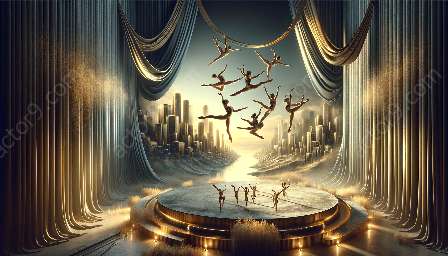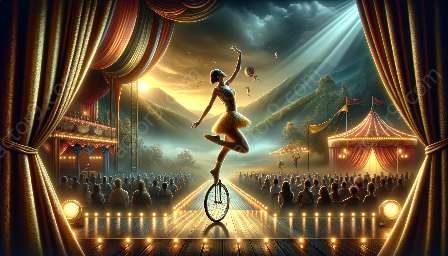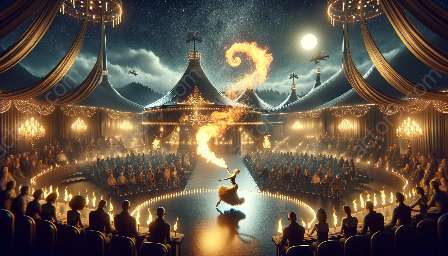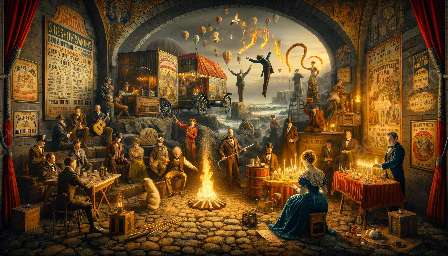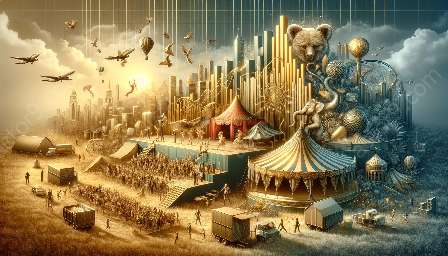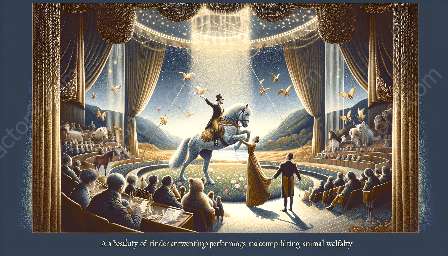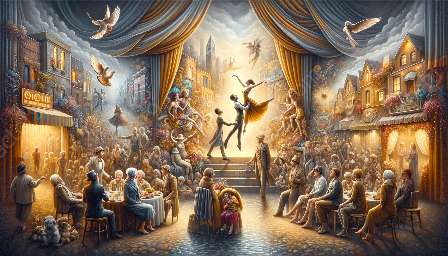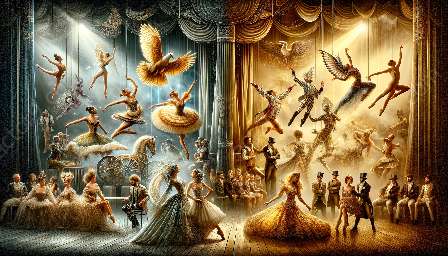Training animals for circus acts raises important ethical considerations, especially within the context of development and training in circus arts. This topic cluster aims to explore the complex and often controversial issues surrounding the use of animals in circus performances, while emphasizing the importance of responsible and ethical training practices.
Understanding Circus Arts and Animal Training
Circus arts encompass a wide range of disciplines, from acrobatics and aerial acts to clowning and animal performances. Historically, animals have been an integral part of traditional circus shows, adding an element of excitement and spectacle. However, as societal attitudes towards animal welfare have evolved, the ethics of training and using animal performers in circuses have come under scrutiny.
Historical Context and Changing Perspectives
Historically, animals were trained for circus acts using methods that often prioritized obedience and performance over animal welfare. This approach led to widespread concerns about the physical and psychological well-being of the animals, prompting a shift in public opinion and legal regulations regarding the use of animals in entertainment.
Today, there is a growing understanding of the cognitive and emotional capacities of animals, leading to increased awareness of the ethical implications of training practices in circus arts. Professionals in the industry are now tasked with reevaluating their methods to ensure that animal training aligns with modern ethical standards.
Addressing Ethical Considerations
When considering the ethical implications of training animal performers for circus acts, several key considerations come to the forefront:
- Animal Welfare: Ensuring the physical and psychological well-being of animals involved in circus performances is of paramount importance. Training practices should prioritize positive reinforcement, enrichment, and the provision of adequate care and living conditions for the animals.
- Conservation and Respect: For circus acts that involve exotic or endangered species, the ethical considerations extend to issues of wildlife conservation and respect for the animals' natural behaviors and habitats. Training should aim to promote an understanding and appreciation of wildlife, while avoiding exploitation.
- Public Perception: The ethical considerations surrounding animal performers in circuses are also influenced by public opinion. Transparency in training methods and a commitment to showcasing responsible animal care can help shape a more positive public perception of circus arts involving animals.
- Positive Reinforcement: Emphasizing positive reinforcement techniques that reward desired behaviors without resorting to punitive measures or coercion.
- Enrichment Programs: Implementing enrichment programs to stimulate the animals mentally and physically, providing opportunities for natural behaviors and social interaction.
- Regulatory Compliance: Adhering to local, national, and international regulations governing the use of animals in entertainment, including standards for housing, transportation, and veterinary care.
Training Practices and Ethical Guidelines
The development and training in circus arts should be guided by a set of ethical principles to ensure the well-being of animal performers. Ethical guidelines may include:
Educational Outreach and Alternative Approaches
In the context of development and training in circus arts, there is a growing emphasis on educational outreach and the development of alternative performance approaches that do not rely on animal performers. By showcasing the incredible skills of human performers and highlighting innovative acts, circus arts can thrive while respecting ethical considerations related to animal welfare.
Championing Ethical Excellence
Ultimately, the ethical considerations in training animal performers for circus acts are multifaceted and evolving. By promoting ethical excellence and championing responsible training practices, the circus arts community can play a pivotal role in shaping a future where both human and animal performers are celebrated in a compassionate and conscientious manner.







